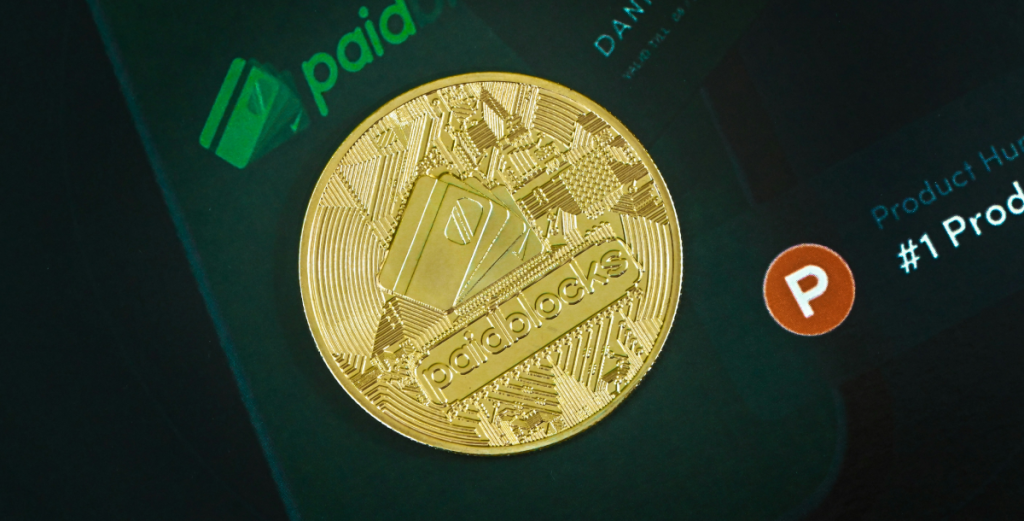Unlock New Business Models, Efficiency, and Capital Flows with Enterprise-Grade Token Infrastructure
Over the past decade, enterprises have digitized documents, automated workflows, and embraced cloud-native operations. But the next frontier is now emerging: digital ownership.
Tokenization—the process of representing real or intangible assets as blockchain-based tokens—is redefining how enterprises think about value, trust, and efficiency. Once considered a niche, tokenization is now seen as a core capability for organizations seeking to innovate in finance, operations, and customer engagement.
The Strategic Shift: Why Tokenization Is Becoming Essential
Tokenization isn’t just a blockchain concept—it’s a business transformation strategy.
It enables companies to represent ownership, rights, or access in a digital format that is programmable, auditable, and secure. Whether applied to financial instruments, supply chains, or consumer ecosystems, tokenization allows enterprises to:
- Create digital twins of real-world assets
- Automate settlement and compliance
- Enhance liquidity and market access
- Build interoperable digital ecosystems
This shift opens the door to new business models, faster capital formation, and smarter operations—a compelling value proposition in today’s fast-moving digital economy.
Real-World Use Cases: Where Tokenization Creates Enterprise Value
To move from theory to application, it’s important to understand how tokenization is already delivering measurable impact. Below are four key areas where enterprises are deploying token strategies today:
1. Real-World Asset (RWA) Tokenization
Organizations are digitizing assets such as real estate, commodities, and fine art—unlocking fractional ownership, broader investor access, and faster liquidity.
2. Supply Chain Traceability
By issuing tokens that represent goods in transit, companies can verify provenance, reduce fraud, and streamline payments in global logistics networks.
3. Loyalty and Rewards Innovation
Tokenized loyalty programs allow brands to offer tradable, interoperable, and programmable incentives—improving customer retention and engagement.
4. Internal Treasury and Capital Optimization
Large organizations are issuing tokens for intercompany settlements, streamlining treasury operations, and even exploring tokenized bond issuance.
Each of these use cases reflects a broader trend: enterprises are using tokens not only to represent value but to create efficiencies and build trust at scale.
The Business Benefits: Why Enterprises Are Investing in Tokenization
The value of blockchain lies in its convergence of trust, automation, and market access. Tokenization, as a key application of blockchain technology, enables and amplifies these benefits by:
- Increased Transparency
Blockchain-based tokens create real-time, immutable audit trails. - Operational Efficiency
Smart contracts automate workflows and reduce manual processing costs. - Global Interoperability
Digital tokens move seamlessly across borders and platforms. - New Capital Access
Fractional ownership unlocks new investor segments and liquidity options. - Built-in Compliance
On-chain identity verification and permissioning reduce regulatory risk.
These aren’t theoretical benefits—they’re measurable improvements seen in enterprise tokenization pilots around the world.
Why Every Enterprise Should Consider Tokenization
Tokenization isn’t reserved for financial institutions or crypto-native startups. Nearly every enterprise—regardless of industry—has assets, workflows, or engagement models that can benefit from digital representation.
- Manufacturers can tokenize components for traceable supply chains.
- Retailers can tokenize loyalty points for greater program flexibility.
- Media companies can tokenize digital rights for transparent royalty distribution.
- Healthcare providers can tokenize patient records for secure data portability.
- Governments can tokenize permits, certificates, and licenses for fraud-proof issuance.
The common thread? Tokenization adds trust, programmability, and transparency to any system where ownership, access, or value must be tracked and exchanged. As the economy becomes increasingly digitized and interconnected, enterprises that adopt tokenization early gain a long-term structural advantage.
From Strategy to Execution: What Enterprises Need to Get Tokenization Right
Despite its promise, tokenization success doesn’t come from simply issuing a token. Enterprises need to architect secure, compliant, and scalable ecosystems that can support tokenized assets across their full lifecycle. That means starting with a robust token issuance platform—one that is secure, auditable, and built for enterprise use.
Smart contract governance must also be tightly integrated with regulatory compliance, embedding KYC/AML, access control, and permissioning into the logic itself. Equally important is the underlying custody and wallet infrastructure, which should include institutional-grade access management such as MPC (multi-party computation) and role-based permissions.
Beyond technical foundations, tokenization must work with existing systems. Enterprises must ensure seamless integration with internal ERP, treasury, and third-party data platforms to maintain operational continuity. And because regulatory landscapes vary across jurisdictions, legal readiness must be baked into the architecture from day one.
These layers of complexity are why many enterprises turn to experienced infrastructure partners to accelerate tokenization efforts while minimizing risk. With the right support, these moving pieces become manageable—transforming tokenization from a theoretical innovation into an operational advantage.
How ChainUp Supports Enterprise-Grade Tokenization
ChainUp offers a full-stack tokenization platform that enables enterprises to design, deploy, and manage tokenized ecosystems with confidence. Key components include:
- Token Factory – For utility, RWA, and security tokens
- Compliant Custody Solutions – MPC wallets with fine-grained controls
- Regulatory Framework Alignment – With considerations for standards such as MAS, HKMA, and other relevant guidelines.
- Cross-chain Interoperability – Bridge and oracle modules for flexible deployment
ChainUp has already served over 1,000 B2B clients across 30 countries, powering diverse applications in various industries.
Conclusion: Preparing for the Tokenized Economy
Tokenization is quickly becoming a foundational layer of the digital economy. Enterprises that adopt token strategies today are setting themselves up to lead tomorrow—whether by unlocking new capital channels, streamlining operations, or transforming customer engagement.
ChainUp offers the expertise, infrastructure, and compliance tooling to help enterprises move beyond experimentation and into production with confidence.
If you’re ready to explore how tokenization can transform your business, ask for a demo or schedule a consultation with ChainUp’s tokenization experts.




